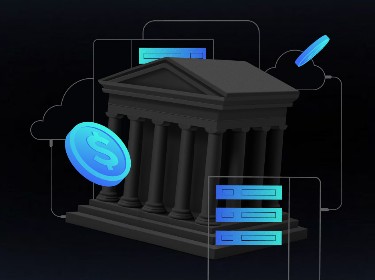Big data enables businesses to extract invaluable insights from their data and convert them into actionable strategies for future growth and innovation. To achieve this, companies must select a suitable big data platform. But how can they determine which one is the right choice?
As more companies recognize the enormous potential inherent in their data, they are increasingly integrating big data capabilities into their workflows.
Currently, the market offers a wide variety of big data visualization consulting services. Nevertheless, choosing the right big data platform is a decision that demands careful consideration as it will greatly impact the success of a company’s overall data strategy.
To assist you in making a well-informed decision, we have curated a list of the 15 best big data analytics tools and platforms for 2026. We have also provided an overview of the most important features to take into account when selecting a big data tool to help you choose the best option for integrating into your operations.
Check out our detailed overview of the top 50 big data statistics and trends of 2026 and beyond and see why you need to adopt big data in your business
Which aspects you should focus on when choosing a big data analytics platform
![]()
When selecting a big data analytics tool, it is important to carefully consider a range of technical and operational factors. Each aspect should comply with your specific business needs and technological requirements to secure the best fit. This is especially crucial in industries heavily reliant on data, such as entertainment and social media. For instance, data analytics services for the entertainment and eSports industry might prioritize real-time data processing for live event analysis, while data analytics services for the social media industry might focus on sentiment analysis and trend prediction.
Here is a detailed overview of the seven essential factors to keep in mind.
1. Scalability and performance
The platform’s capacity to handle data loads without degradation in performance is paramount. Thus, you will need to evaluate whether the big data analytics tool can successfully distribute processing tasks across multiple nodes while supporting substantial data volumes and simultaneous user access without performance compromise.
Performance metrics such as query response times and data throughput are also crucial indicators of a system’s efficiency. Comparing these metrics against industry benchmarks will provide a clearer understanding of the tool’s capacity and guarantee that the solution conforms to the best standards in data processing performance.
2. Data integration and compatibility
A seamless integration with existing technologies and support for a wide range of data formats is essential for a cohesive data environment.
Therefore, check the big data platform’s compatibility with SQL databases, NoSQL databases, and cloud storage services. Plus, you can evaluate the ease with which it can ingest data from various sources such as IoT solutions and devices, social media streams, and enterprise resource planning systems.
3. Security features
A detailed evaluation of the security features of a big data tool is important to secure compliance with industry standards and regulatory requirements. Key security elements to consider include end-to-end encryption, consistent automated backups, and robust network security measures such as firewalls and intrusion detection systems.
What’s more, adherence to regulatory frameworks like GDPR, HIPAA, or SOC2 needs to be taken into account as well, depending on the operational geography and sector of your business.
4. Cost efficiency
Understanding the upfront and ongoing costs of data storage, processing, and network usage is essential for sound financial planning.
So, a platform that adjusts costs based on actual usage can prevent unnecessary expenditures on unused resources. In addition to this, detailed cost reporting features prove beneficial for monitoring and optimizing financial outlays over time.
On the other hand, fixed-cost models often lead to inefficiencies and can inflate budgets as they do not respond to fluctuations in demand or changes in consumption patterns.
5. User support and community
A big data analytics platform that is backed by a dedicated technical support team and a comprehensive knowledge base allows for quicker troubleshooting.
On top of this, a vibrant community of developers can offer unofficial tips and third-party tools that enhance the platform’s functionality and performance.
6. Analytical tools and reporting
Look for platforms that provide robust and sophisticated advanced analytics features, including predictive analytics services, machine learning software development algorithms, and real-time data processing. These capabilities foster innovation, enhance operational efficiency, and enable the discovery of subtle trends and patterns that might otherwise remain hidden.
In addition, customizable dashboards and visual reporting tools enable users to easily interpret data and generate insights. Incorporating these tools with APIs for seamless data integration and automation can streamline workflows, improve system interoperability, and facilitate the development of more dynamic and responsive data strategies.
Explore our data visualization services, covering consulting, design, implementation, and more, and see how our team can help your business gain a competitive edge
7. Future-proofing and innovation
Opt for a big data tool that can both fulfill your current requirements and adapt to future advancements.
Check for regular updates and roadmap alignment with evolving technologies like artificial intelligence, blockchain development, and edge computing.
Chiefly, the big data analytics tool should provide the flexibility to seamlessly integrate new data sources and adjust to fluctuations in data volume and diversity — all without necessitating significant redesign or additional investments.
Overview of the 15 best big data analytics tools
![]()
Take a look at some of the best big data platforms and see what makes each of them special.
1. Apache Hadoop
Apache Hadoop continues to stand out as a robust framework that supports data-intensive distributed applications. It utilizes the Hadoop Distributed File System and offers massive scalability across hundreds or thousands of servers.
The platform is capable of processing large volumes of unstructured data, which makes it suitable for businesses dealing with extensive data sets.
What’s more, Hadoop’s ecosystem includes other powerful tools such as MapReduce and YARN that allow for the processing of even more extensive data sets.
2. Google BigQuery
Google BigQuery is a fully managed, serverless data warehouse that enables scalable and cost-efficient data storage and analysis. It provides users with real-time analytics and machine learning techniques, which makes it a go-to tool for enterprises that require immediate insights from their vast data repositories.
BigQuery’s performance is further enhanced by its in-memory query execution, and its integration with Google Cloud AI adds powerful predictive analytics to its portfolio. The platform also offers robust data transfer services, which greatly simplifies data ingestion from a variety of sources, including batch and stream processing.
3. Amazon Redshift
Amazon Redshift is a cloud-based big data platform that offers fast querying and data warehouse capabilities. This big data tool leverages columnar storage and massively parallel processing to quickly execute complex analytic queries over petabytes of data.
Redshift integrates smoothly with other AWS services, which enhances its utility with extended AWS infrastructure support and security features. The big data analytics platform is designed to be cost-effective and provides resizable capacity while managing all the work of setting up, operating, and scaling a data warehouse.
4. Microsoft Azure Synapse Analytics
Microsoft Azure Synapse Analytics integrates big data and data warehousing into a comprehensive analytics service that speeds up time to insight across data lakes and extensive data systems.
The solution provides deep integration with other Azure services, including Power BI and Azure Machine Learning, in order to create a scalable and powerful analytics environment.
Azure Synapse Analytics features on-demand or provisioned resources, allowing users to match their performance and cost preferences effectively. Its support for T-SQL ensures that SQL professionals can utilize familiar syntax and skills to successfully manage big data environments.
Take a look at our comprehensive guide for business data warehouse automation
5. Snowflake
Snowflake’s cloud data platform offers a centralized repository for structured and semi-structured data that supports a variety of workloads such as data warehousing, data lakes, and data science.
Unlike traditional shared-disk or shared-nothing architectures, Snowflake uses a unique architecture defined by a multi-cluster shared data architecture that enables accessible, secure, and governed data networks.
Also noteworthy is that this big data analytics tool automatically handles infrastructure, optimization, availability, and data protection, allowing users to focus on deriving meaningful insights rather than managing the system.
6. Cloudera Data Platform
Cloudera Data Platform is designed to handle any data in both on-premises and multiple public cloud environments. It provides granular security and governance controls that meet the needs of the most demanding data workloads and compliance requirements.
The big data platform also supports a variety of analytic functions on diverse data types, thus facilitating flexible and scalable deployments that can evolve with diverse business needs.
7. IBM Cloud Pak for Data
IBM Cloud Pak for Data assembles a comprehensive suite of data and artificial intelligence services within a single platform, integrating data management, data governance, and analytics through cloud-native technology.
Enhanced by IBM Watson, the big data analytics tool accelerates the deployment of AI to help unlock powerful insights hidden in business data and provides an open and extensible architecture that runs on any cloud.
The platform supports high-performance analytics and machine learning, helping data scientists and engineers automate the AI lifecycle. IBM Cloud Pak for Data also features real-time data analysis capabilities, which are essential for making well-informed decisions swiftly.
8. Databricks
Databricks delivers a unified analytics platform that streamlines data science engineering services, machine learning, and business analytics. Its ability to integrate with existing data architectures and provide real-time analytics often makes it a top choice for enterprises looking to innovate rapidly.
The solution supports collaborative efforts among data teams by providing tools that simplify the transition from data ingestion to business insights. It also encourages scalable and efficient data processing, which is a significant aspect for all data-driven enterprises.
Engage with our data analytics experts to enhance your operational intelligence and strategic outcomes
9. Oracle Cloud Infrastructure Database Management
Oracle provides a robust data management suite that is designed to accommodate a broad spectrum of data models, including data lakes, warehouses, and multi-model databases. The platform is particularly strong in machine learning solutions and real-time analytics and is able to support diverse and complex queries with a high level of efficiency.
Oracle’s flexibility in managing data across multiple clouds helps organizations optimize their data strategies according to specific needs. Plus, its comprehensive approach guarantees that businesses can manage, analyze, and secure their data within a unified environment.
10. SAP HANA
SAP HANA enhances data-driven decision-making processes by allowing businesses to analyze live data rapidly through in-memory computing. This high-speed operation facilitates advanced data analytics and application development on a single data instance.
SAP HANA’s capability to handle high transaction rates and complex queries makes it suitable for large enterprises dealing with vast amounts of data.
The big data tool also supports advanced analytics strategies, including streaming analytics and machine learning, providing businesses with the tools to drive innovation.
11. Teradata Vantage
Renowned for its scalability, high performance, and ability to accommodate flexible cloud deployment options, Teradata Vantage integrates large volumes of data with business analytics to provide actionable insights.
The Vantage solution by Teradata supports a wide range of analytic functions and data types, making it versatile for enterprise applications.
Besides, its tools facilitate complex data analytics, which empowers businesses to harness the full potential of their data assets for strategic advantage.
12. Qubole
Qubole provides a self-service platform optimized for big data analytics across various cloud environments.
The big data analytics tool supports scalable data processing, which enables data scientists and analysts to manage and analyze substantial datasets.
Importantly, Qubole’s automation of data pipelines significantly simplifies the management of data workflows and facilitates quicker insights and improved data governance.
Elevate your business insights and strategy with our business intelligence services, encompassing development and consulting expertise
13. Splunk
Splunk specializes in analyzing machine-generated data, which is a vital aspect for top operational intelligence. Its ability to deliver operational insights makes it invaluable for businesses that heavily rely on real-time data.
The platform provides powerful tools for monitoring, searching, and analyzing big data in real time, and is crucial for timely decision-making.
As well as this, Splunk’s scalability ensures it can handle vast amounts of data effectively, supporting extensive data indexing and visualization capabilities.
14. Talend
Talend addresses the challenges of data integration and integrity with a comprehensive set of tools that enhance the accuracy and consistency of big data. It supports a variety of integration scenarios, ensuring adaptability in a fast-evolving data landscape.
This big data analytics tool also facilitates the collection, governance, transformation, and sharing of data across diverse systems.
Talend’s emphasis on maintaining data quality is a nice option for enterprises that base their core decisions on reliable data.
15. Informatica
Informatica provides an automated, scalable big data management platform tailored for both on-premises and cloud environments. This makes it a strategic choice for managing complex data setups with support for real-time data processing and cloud data management.
This big data analytics tool also offers comprehensive data integration capabilities, streamlining data management processes while ensuring accuracy and security across all systems through its data quality, integration, and governance solutions.
How PixelPlex can help
Whether you are looking to develop a custom data solution or need expert guidance in selecting, customizing, and seamlessly integrating a specific big data tool into your business operations, our big data specialists at PixelPlex are prepared to deliver the necessary assistance.
We provide comprehensive big data services that can help unlock the value of your business data.
Our offerings include:
- expert big data consulting
- data security software development
- data engineering and architecture
- data science development services
- quality assurance
- data governance and security
- blockchain integration
- metaverse development services
- AR/VR development
Our expertise also extends to a diverse range of internal products, including DocFlow, a blockchain-powered document management system, and KYT, a crypto compliance and risk management platform.
Contact us to explore how our innovative solutions can upend your data management strategy and drive unparalleled growth for your business.
Let’s embark on this journey together and unlock the full potential of your data assets.




